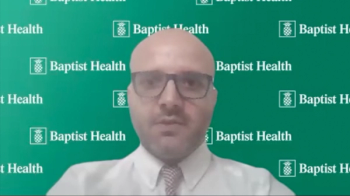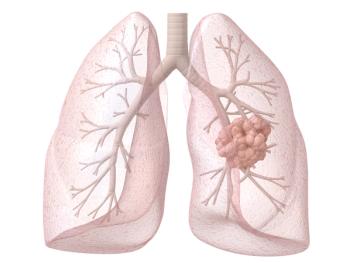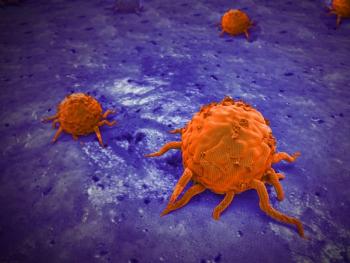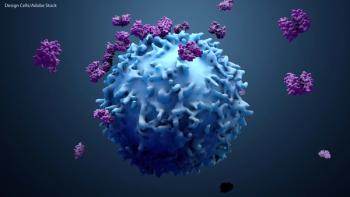
In neuroendocrine tumor management, patients with insulinoma may be at risk of severe hypoglycemia following receipt of GLP-1 receptor agonists.

Your AI-Trained Oncology Knowledge Connection!


In neuroendocrine tumor management, patients with insulinoma may be at risk of severe hypoglycemia following receipt of GLP-1 receptor agonists.

Topline data are expected to be available in the first half of 2026 after the submission of results for presentation at a medical conference.

Decreasing the low-dose bath of proton therapy to the body may limit the impact of radiation on lymphocytes and affect tumor response.

Aditya Bardia, MD, highlights the successes and challenges associated with ADC treatments in breast cancer.

Phase 2 data showed no dose-limiting toxicities with EIK1001 plus pembrolizumab in patients with advanced non–small cell lung cancer.

ILKN421H plus pembrolizumab previously showed antitumor activity among patients with frontline non–small cell lung cancer in a phase 1 trial.

According to Eyub Akdemir, MD, reducing EDIC may be feasible without compromising target coverage to reduce anticipated lymphopenia rates.

Improvements in safety were observed without compromising efficacy after non-myeloablative lymphodepletion was reduced in this NSCLC population.

Manali Patel, MD, MPH, MS, FASCO, discusses current gaps, projected needs, and actionable strategies for the US hematology and medical oncology workforce.

Cancer cachexia can be deadly, and due to AEs or the tumor itself, scientists are now looking at molecular subtypes to inform treatment decisions.

Vickie Baracos, PhD, determined 2 highly coherent molecular subtypes in human muscle from patients with cancer at risk of cachexia.

Considering historical trends of underpowered data in NET surgical studies, CUTNETs established a collaboration of surgical teams to better power research.

Phase 3 data demonstrate PD-L1 positivity and BRCA mutation status as prognostic for improved overall survival regardless of treatment arm.

The glofitamab-based regimen displayed manageable safety, with minimal high-grade CRS and infrequent low-grade ICANS, in relapsed/refractory LBCL.

A shorter course of radiotherapy may provide similar oncological outcomes as long-course treatment for older patients with locally advanced rectal cancer.

Three GI cancer medical oncologists discuss the most significant abstracts in GI cancers from the 2025 ESMO Congress.

No dose-limiting toxicities were observed in the phase 1/2 trial evaluating zurletrectinib in patients with NTRK/ROS1-driven malignancies.

Data from a phase 2 study support further development of sacituzumab tirumotecan plus pembrolizumab in metastatic castration-resistant prostate cancer.

Vickie Baracos, PhD, discusses recent results that investigate cancer cachexia and how the RNome of the muscle plays a role.

Among patients with locally advanced/metastatic urothelial cancer who received at least one 2.2 mg/kg dose of BL-B01D1, the confirmed ORR was 44.1%.

The denosumab-bmwo products Stoboclo and Osenvelt have been approved as interchangeable with the denosumab products Prolia and Xgeva, respectively.


212Pb-DOTAMTATE showed “unexpectedly good” outcomes among those with gastroenteropancreatic neuroendocrine tumors, said Mary Maluccio, MD, MPH, FACS.

Definitive concurrent chemoradiation followed by consolidation durvalumab in the absence of progression remains the standard of care for stage III NSCLC.

Combinations of antiangiogenic therapy with chemoimmunotherapy may feasibly be shifted forward in real-world extensive-stage small cell lung cancer care.

A unique cisplatin-containing intratumoral formulation achieved a median OS of 18.7 months in patients who were dosed at 40% or more of their TTB.

Researchers have determined that donor age has a stronger, nonlinear impact on OS vs donor type in allogeneic HCT using posttransplant cyclophosphamide for GVHD prophylaxis, with donor type becoming increasingly relevant in older donors.

Researchers have determined that matched allogeneic donor CD19 CAR T-cell therapy, delivered as a CAR-modified donor lymphocyte infusion, is safe and clinically active for adults with relapsed B-ALL following allogeneic transplant.

Data from the phase 2 TUXEDO-3 trial support patritumab deruxtecan as a novel treatment option across different cancer populations with brain metastases.

Explore the latest advancements in antibody-drug conjugates for treating metastatic triple-negative breast cancer, enhancing patient outcomes and safety.